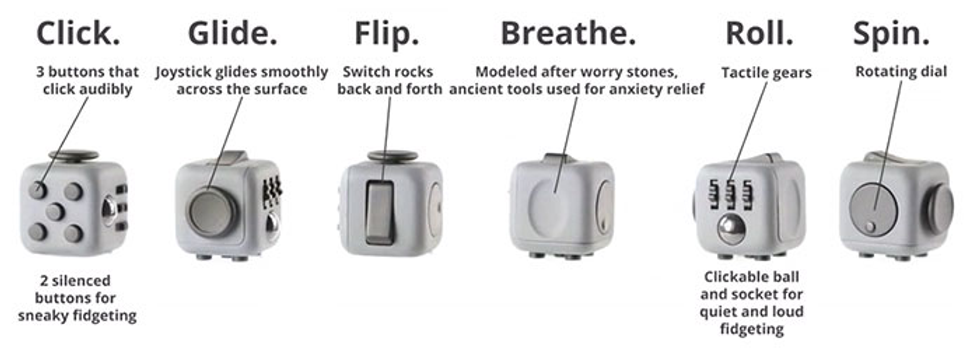Fidgeting happens for a whole list of different reasons, from physical to mental diagnosis fidgeting happens to almost everyone. You might be thinking well I can’t help fidgeting so why should I even read this article?? Simply read and find out why you fidget and how you can help yourself or others around you.
Recently I have been to a few shows with friends and family and I have noticed how often people fidget. I was at a show with my mom and sat next to me was an elderly man who didn’t stop shaking his leg the entire time. Then I went to a choir concert with some friends and my one friend moved around in his seat the whole time, which got me thinking, why do some people fidget so much? Is it subconscious, or it is a mental and medical disorder that causes it?
With some research I have discovered that fidgeting can happen for so many different reasons, whether it be pure boredom, a mental problem, or physical concern it really depends on the person and the circumstance. In particular, there is a widely held notion that fidgeting is associated with faltering attention. For example, Gligoric et al. surveyed 230 students about their beliefs in what best exemplifies impoverished attention in a lecture setting. The respondents listed fidgeting (along with making noise) as one of the two most common indicators of waning attention in the classroom environment. In addition, Mehrabian and Friedman found a positive correlation between tendency to fidget (both self-reported and objectively coded) and propensity to daydream. In a more recent series of studies, using various self-report measures of fidgeting and attention, Carriere et al. also found a strong association between self-reported fidgeting behavior and decreased attention and mind wandering.” For many people fidgeting is a way to stay in contact with what they are watching or listening to, in a sense fidgeting is used to pay attention and not loose focus however it seems to distract people more than it sustains attention.
In relation to mental illnesses/ disorders countless studies have shown that people who have ADHD or ADD tend to struggle more with fidgeting than others. This is because, ADD and ADHD are attention deficit disorders meaning they have a hard time staying focused so they use fidgeting to help them concentrate. “ AD/HD is one of the most common developmental problems, affecting 3–5% of the school population. It is characterized by inattention, distractibility, hyperactivity and impulsivity”… Furthermore, “AD/HD predominantly hyperactive impulsive type is characterized by fidgeting with hands and feet, squirming in one’s chair, acting as if driven by a motor, interrupting and intruding upon others.” Anxiety and uncomfortableness also has a big impact on fidgeting and restlessness. I have noticed that for me whenever I am nervous or anxious I tend to do certain things like shake my leg or move around in my seat a lot. Sometimes I even play with my hair or my rings, which are all coping mechanisms to deal with anxiety that helps calm me. Fidgeting is not a bad thing it is a natural way to try and calm yourself or make your body feel more comfortable in a nerve racking situation.
There are less physical issues that coincide with fidgeting; however there are a few disorders that can cause excessive fidgeting such as Restless Leg Syndrome (RLS). My dad has RLS and I know he can’t help it but he moves around a lot at movies or just sitting on the couch at home and sometimes I point it out to him and he doesn’t even notice that he is doing it. This shows how subconsciously people fidget and how minimal it affects the individual but how impactful it is to those around them.
A new product that recently came out was the “fidget cube” and I have seen such a difference with certain people’s mannerisms since they received or purchased this product.
This by no means is a sponsor for the fidget cube just a shout out to how helpful they are to those who fidget a lot. There are 6 sides to it as you can see in the picture and they are meant to help with all kinds of fidgeters.
Anyway now you know why you may fidget so much and something you can get to help you with your restlessness.



















